Actions we can take on our own properties:
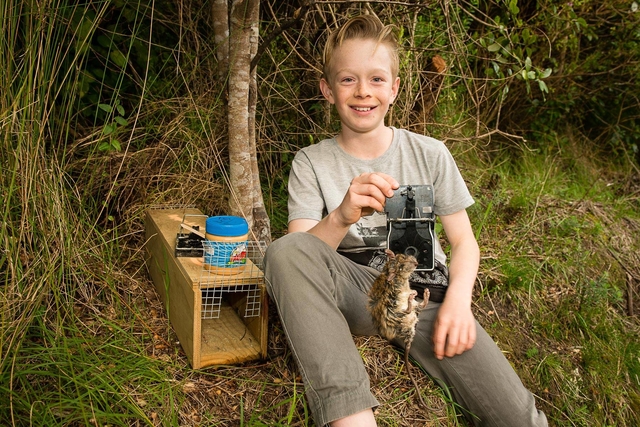 We can supply traps at no charge and train you how to use them:
We can supply traps at no charge and train you how to use them:
- Rat traps in tunnels
- Possum traps
- Stoat traps
Contact us
If you let us know your address, from google maps, we can work out how many traps you'll need and arrange a time to deliver them and go through their operation.
Currently we have 250 properties/areas being trapped by approx 138 active trappers. Lots of folk are covering their neighbours place, if they're unable to do it themselves.
When we control pests we'll get more birds, but we have to make sure they have enough tucker to eat!
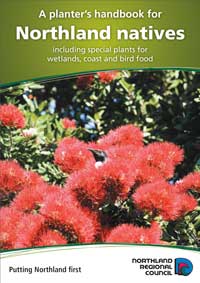 The Northland Regional Council put out this fantastic downloadable booklet on native trees and plants.
The Northland Regional Council put out this fantastic downloadable booklet on native trees and plants.
- What native trees are the best food for kereru / tui / silvereye
- Which trees possum most like to eat!
- Growth rates / final heights / what conditions each species prefers
Here's the cheat sheet on birds tree preferences:
|
Kukupa (NZ Pidgeon)
|
Tui and Silvereye
|
It's really important to nail these guys and stop their spread, now is better than later!
Northland Regional Council have an excellent section on their website with advice on how to deal to them.
https://www.nrc.govt.nz/environment/weed-and-pest-control/pest-control-hub/
Possibly the most common ones on our peninsula are below with links to how to get rid of them:
{gallery}OPC/pest-plants{/gallery}
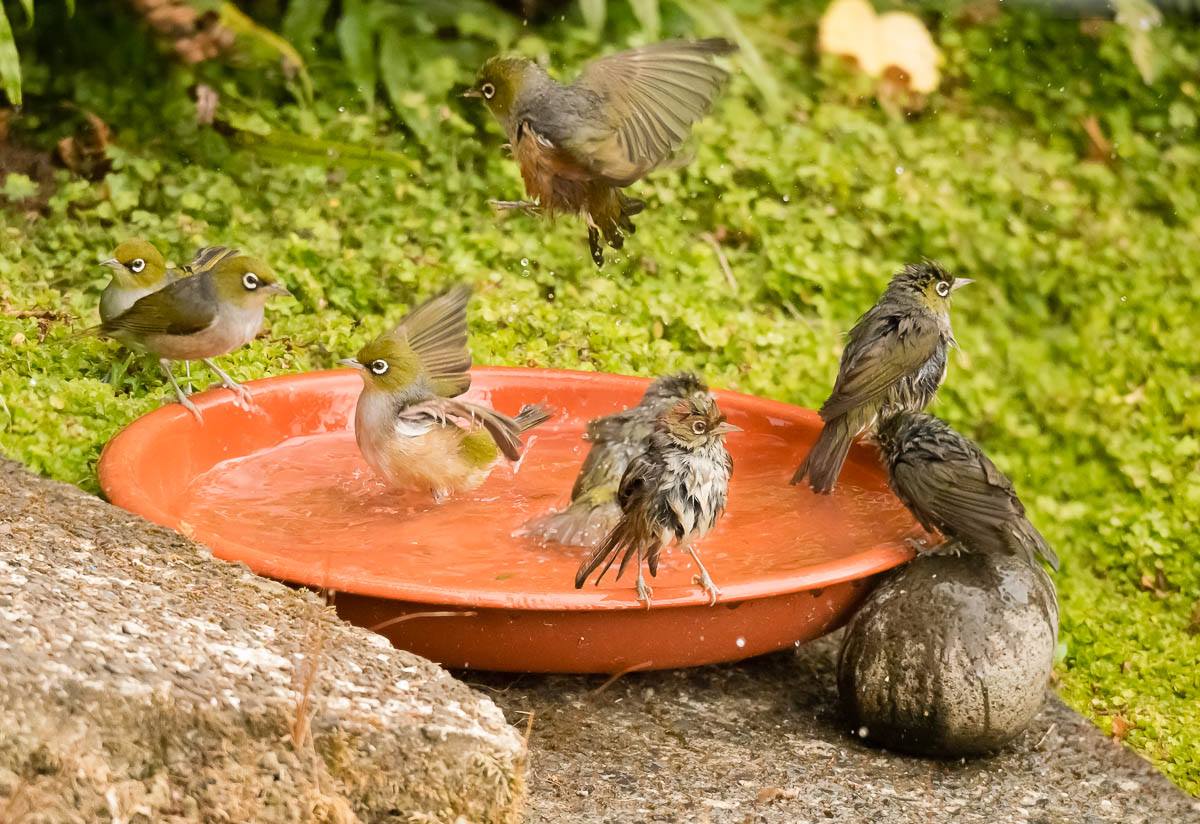 The humble bird bath
The humble bird bath
Man, birds love to bathe, especially in the height of summer. It's important to change the water and clean them regularly, like twice a week. Good for the birds, but also great entertainment value :)
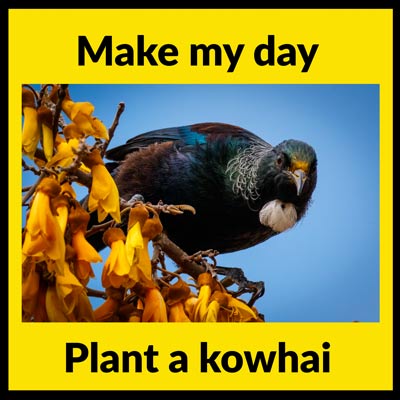 Set up a tui feeder
Set up a tui feeder
It'll attract nectar feeders like tui and silvereyes and they'll love you for it :)
You can buy one here:
https://creativewoodcraft.co.nz/product/wild-bird-nectar-feeder
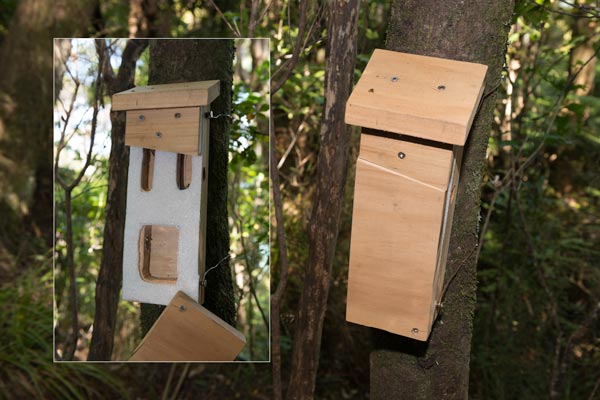
Put a weta hotel in your garden/bush
As the DoC website says: "Female wētā lay 100-300 eggs so if you build a home they like and wētā live there, their numbers will grow" - good for kiwi, and other birds that eat them.
DoC's page with plans to build your own here
Buy one here
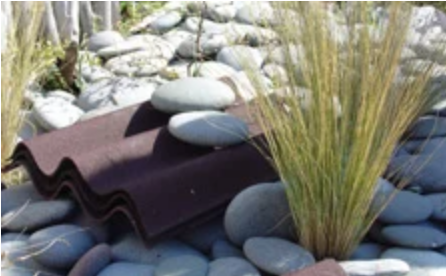 Set up a lizard shelter
Set up a lizard shelter
This one is made of onduline roofing material but any roofing material will do the trick. Put spacers in between the sheets so the lizards can comfotably get in and out and once you've set it up don't disturb it.
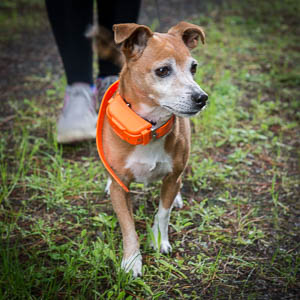 Email us
Email us
Or call avoidance trainer Lesley Baigent - 027 313 4974
Read guidelines for dog owners living in a kiwi zone here
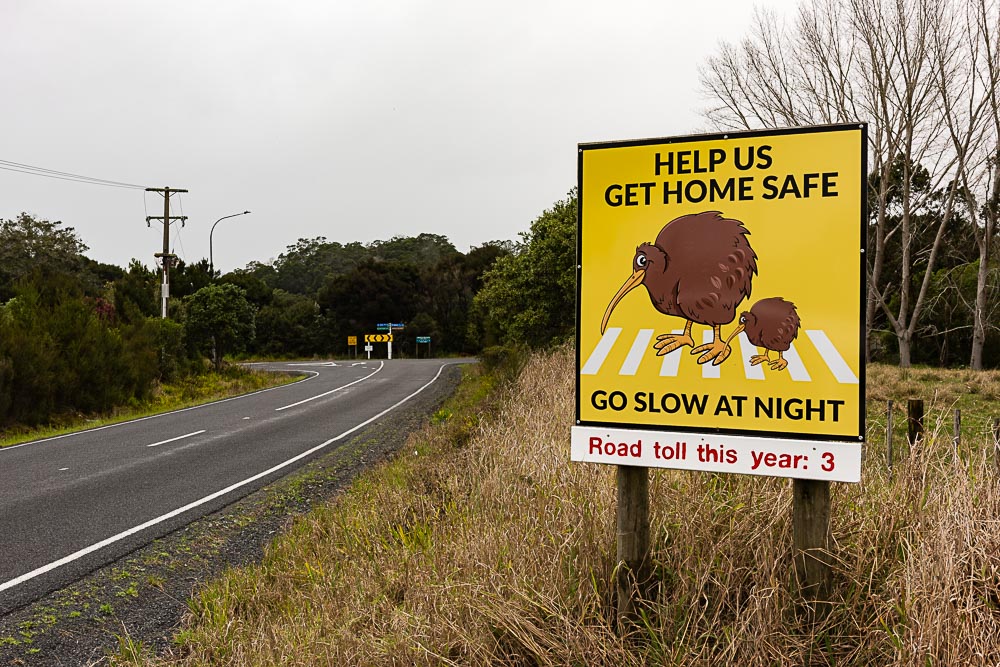
2018 road toll -6
2019 road toll - 7
2020 road toll - 5
2021 road toll - 4
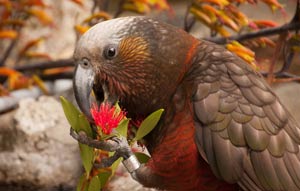 We've added a section on the website that lets you report sightings of uncommon native birds. We then add the location to a google map displayed on the page.
We've added a section on the website that lets you report sightings of uncommon native birds. We then add the location to a google map displayed on the page.
In Opito, we've had a kaka hanging out on the neighbours deck and buzzing our place. One was also spotted by Terry and Ali, our Rangitane coordinators, while they were out walking in Akeake Reserve.
Occassionally folk see Miromiro (Tom Tits) - call them in!
Bird counts are an important part of measuring how effective we are being with pest control.
If you know your birds reasonably well this is a job you could do annually from your own home or other areas. Currently we do them in Akeake and Rangitane Reserves and it would be great to have a group of folk that are trained in this.
https://kppc.kiwi/reserves/akeake/172-akeake-bird-monitoring-september-2017.html
call Deb on 027 245 3080 or Dean 027 243 1777
This involves sitting outside for two hours at a time for three nights in June/July (dates depend on the moon phase)
This monitoring is really important going forward to see if kiwi numbers are increasing. If you'd like to do listening on your property please get in touch, we have some great resources we can send you.
Last year, Fleur and Deb (who have bionic hearing) recorded an amazing 18.3 average calls per hour at the historical listening site at Rangitane Reserve. That's heaps.
Our group has an agreement with DoC to do pest control, weeding and limited planting in Akeake and Rangitane Reserves - here's things you can do to help:
Akeake Reserve at the end of Opito Bay is a beautiful walk. It's relatively free of pest weeds but there are some that need attention. Join our weeding group do as little or as much as you like. If you'd like to be involved call Deb on 027 245 3080 or Dean 027 243 1777
We will have an ongoing need for native tree seed/fruit sourced from old, well established trees. If you have any of the following on your property we'd love to hear from you
- Kowhai
- Miro
- Puriri
- Nikau
- Taraire
- Rewarewa
- Kohekohe
- Kahikatea
- Titoki
- Rimu
- Totara
Why do we want seed? To make into seed balls to distribute through the reserves in winter to increase the diversity of the trees/plants providing more food for the birds. Seed ball manufacturers and distributors also required!
call Deb on 027 245 3080 or Dean 027 243 1777
Bird counts are an important part of measuring how effective we are being with pest control.
If you know your birds reasonably well this is a job you could do annually from your own home or other areas. Currently we do them in Akeake and Rangitane Reserves and it would be great to have a group of folk that are trained in this.
https://kppc.kiwi/reserves/akeake/172-akeake-bird-monitoring-september-2017.html
call Deb on 027 245 3080 or Dean 027 243 1777
This involves sitting outside for two hours at a time for three nights in June/July (dates depend on the moon phase)
This monitoring is really important going forward to see if kiwi numbers are increasing. If you'd like to get involved, getin touch, we have some great resources we can send you and full training given.
Last year, Fleur and Deb (who have bionic hearing) recorded an amazing 18.3 average calls per hour at the historical listening site at Rangitane Reserve. That's heaps.
